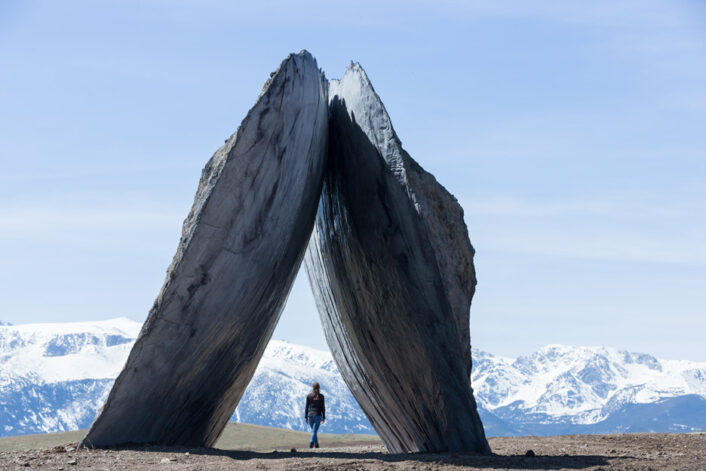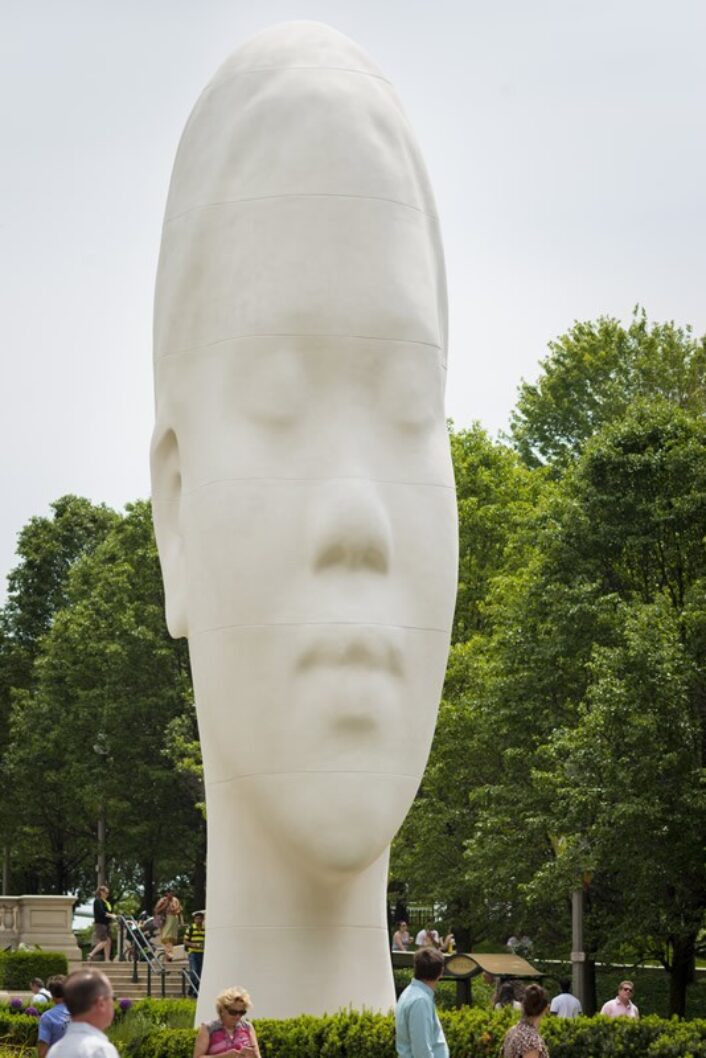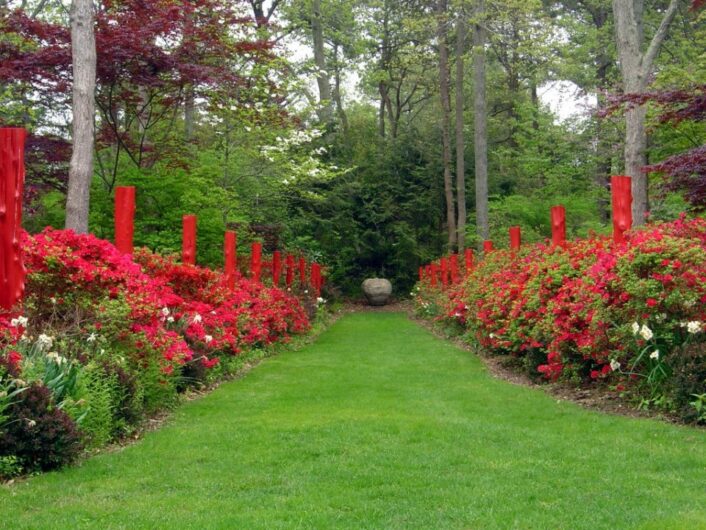Culture
New Art Centre at Roche Court
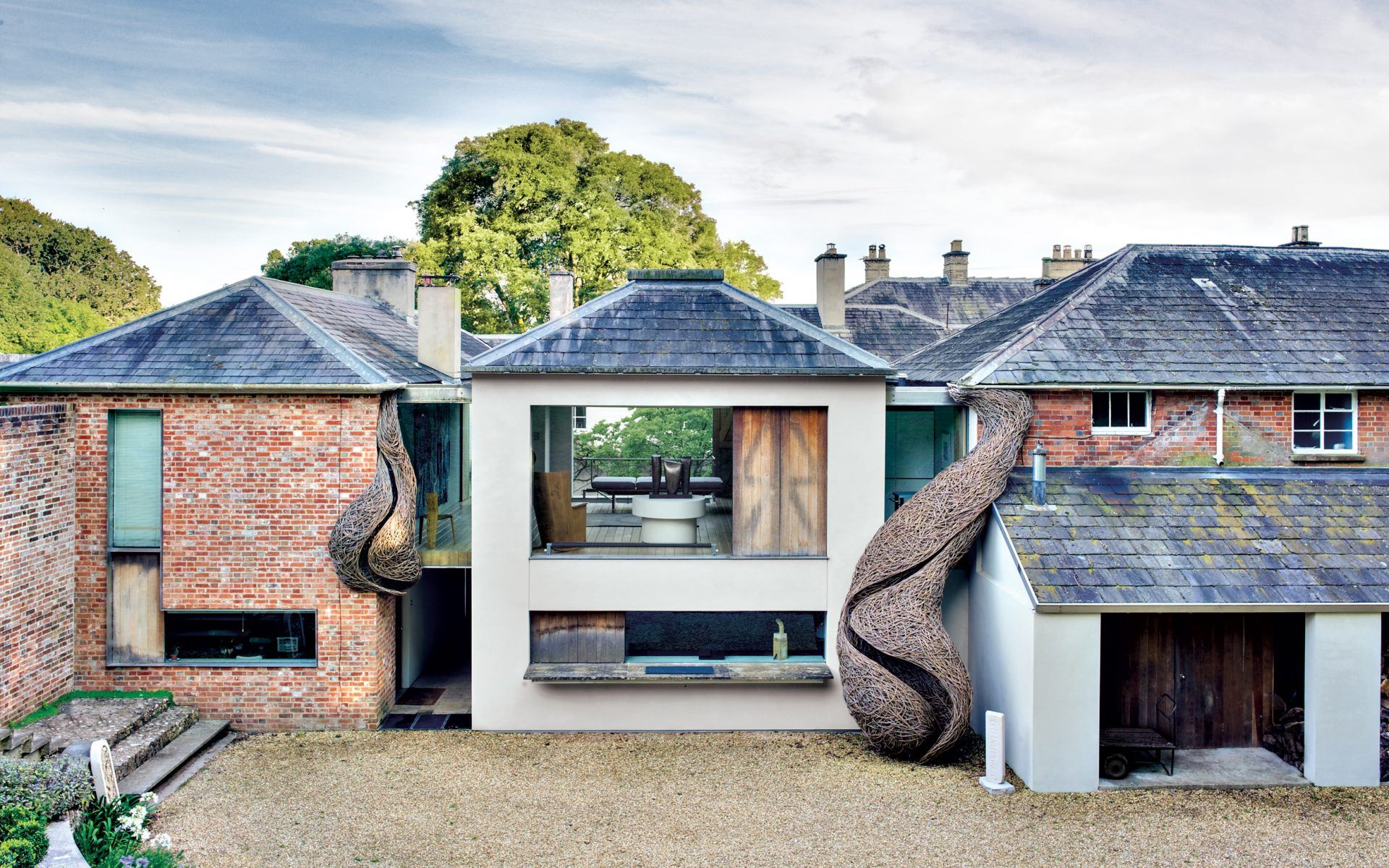
The architect Stephen Marshall was enlisted to design a modern extension to the original residence which dates back to 1804. The new two-story Artists House is used as a “domestically scaled” exhibition space.
Image courtesy of: Galerie Magazine, photograph by: Mark Luscombe-Whyte
It was a big change when the veteran London dealer, Madeleine Bessborough, decided to relocate her gallery from “London proper” to the Wiltshire estate, Roche Court. The grand estate consists of 70 acres of gardens, woodlands, and pastures and it has been Bessborough’s home since 1974. Moving her gallery allowed the dealer to take advantage of the outdoors to display her collection of land art and large-scale outdoor sculptures.
Throughout the years, Bessborough exhibited pieces by Barbara Hepworth, Richard Long, Christopher Le Brun, and many others. Bessborough says, “The London galleries didn’t have the space, but we were very lucky with the rolling geography here, which is wonderful for showing sculpture. One of the reasons that we were asked to take on the Barbara Hepworth estate was that they wanted us to show the big, monumental pieces.”
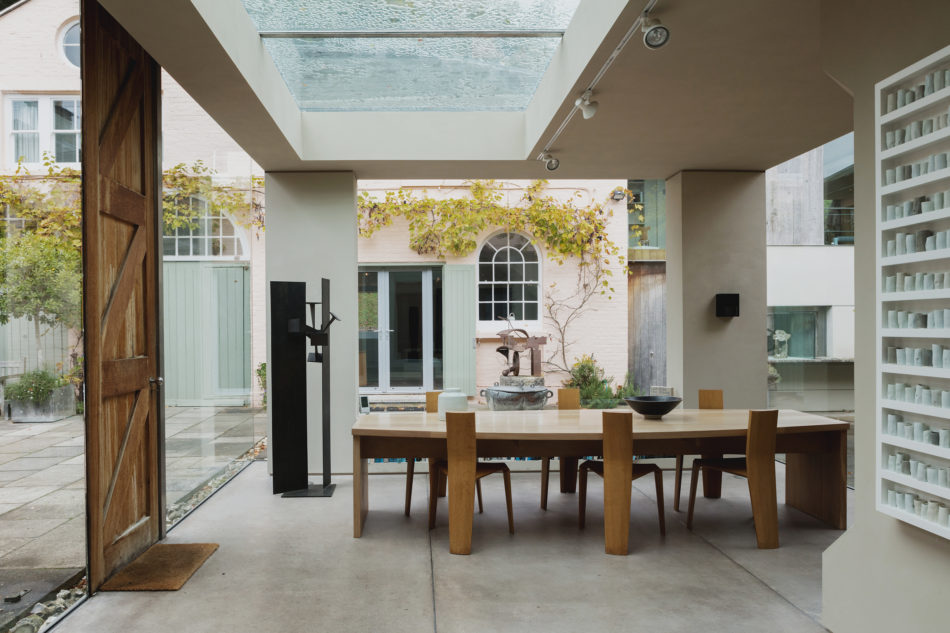
The Cube Gallery with an Edmund de Waal installation in the dining area.
Image courtesy of: My Modern House
When Bessborough opened the New Art Center in 1958, she mainly worked with young painters and sculptors. The gallery remained on Sloane Street for three and a half decades… even through rising rents when limited space became problematic. It seemed natural to relocate to Roche Court, the beautiful neoclassical house that was built for Lord Nelson. Sadly, the Lord never lived in the house as he died at the Battle of Trafalgar before he ever moved in.
Bessborough and her husband, Arthur Ponsonby, the 11th Earl of Bessborough, managed the stunning estate and surrounding farmland until the Earl passed away in 2002. Still today, the property serves as a working farm with cattle co-mingling among the life-sized sculptures in the gardens and pastures.
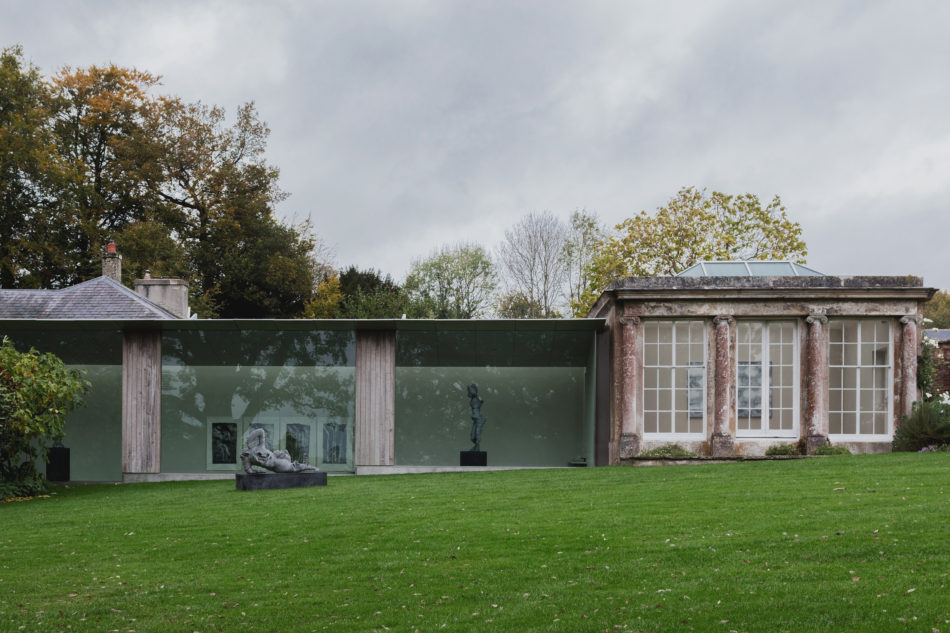
Works by Toby Ziegler hang on the walls of the “corridor exhibition space” that leads to the Orangery.
Image courtesy of: My Modern House
Each building at Roche Court has evolved over the years, thanks to a collaboration between Bessborough and the architect Stephen Marshall. The first project was a corridor-like installation space with one side enclosed in a wall of glass. This wall connects to the original Georgian house, the Orangery.
Marshall then designed another glass-walled gallery extension off the main residence to serve as a private dining room and gallery. Finally, the two-story Artists House was conceived as a residence for visiting artists and as a space for exhibiting work within a domestic setting.
Inside, the expanses of glass fills every interior with light and the oak wood is soft and warm. These specific features allow for a direct connection to the landscape so that the artwork can “breathe.”
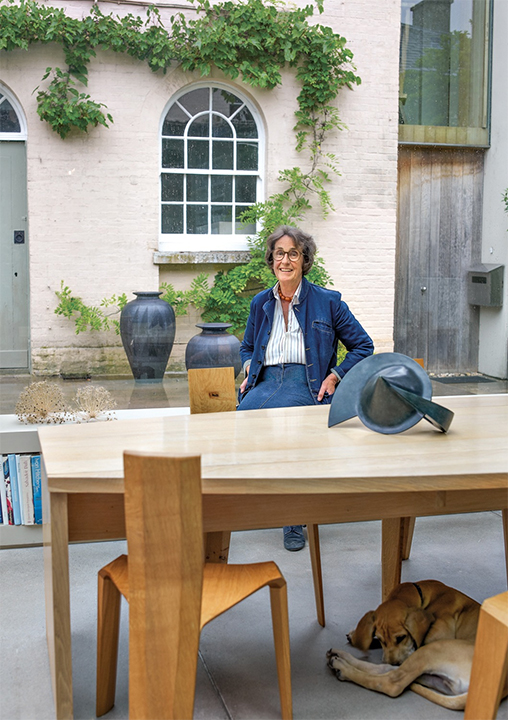
Madeline Bessborough, joined by her dog Theo. The table has an Ellis O’Connell bronze placed on it and Matthew Hilton chairs. The urns behind Bessborough are made by Jenifer Jones.
Image courtesy of: Galerie Magazine, photograph by: Mark Luscombe-Whyte
The term commonly coined to Bessborough is “The Grand Dame of English Sculpture.” At 82 years old, she still goes into the gallery on a daily basis and the park is the culmination of sixty years of Bessborough’s work.
When Bessborough and her husband took over the property, farmers were encouraged to diversify. Perhaps not what they were referring to, the diversification that came to mind for this curious pair was to use the big farm equipment they owned to move life-sized sculptures into the pasture. Bessborough believes that sculptures need to move around so that they do not lose their “living quality.” She said (courtesy of Galerie Magazine), “So everything is for sale and pieces also get a new life when they are moved around the park.”
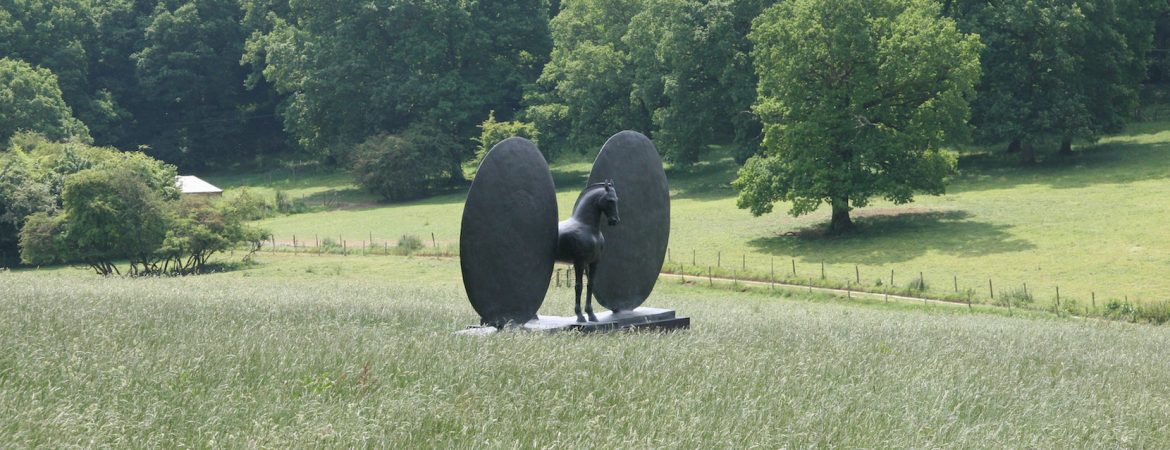
“Union Horse with Two Discs” by Christopher Le Brun, 2001. From an edition of 3, the piece is made from bronze.
Dimensions are: 232 cm. x 466 cm. x 156 cm.
Image courtesy of: Museeum
Placing artwork in domestic spaces allows Bessborough to show that it is meant to be lived with. Rather than seeing a piece in a white-walled, stark gallery space, it might be found next to a bathtub or in the den. To that point, Bessborough says, “It’s all about learning how to live with art. My philosophy has always been that art should be part of your domestic life, rather than sealed off in a gallery.”
The center is open every day and is free to the public. Up next is to move the offices out the main residence space and into stables that were recently converted. This move will allow Bessborough to “reclaim” her home. Although it is one of the few places on the property that is not available to the public, it gets plenty of use by non-family members. The “family home” will finally become a family home again, while the New Art Centre remains available for people so that they can view and understand how to live with contemporary art of all sizes.
